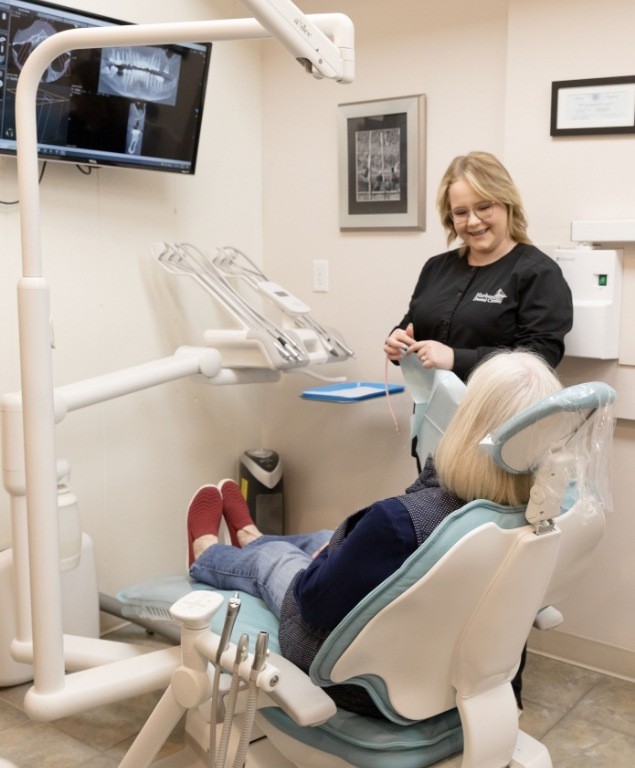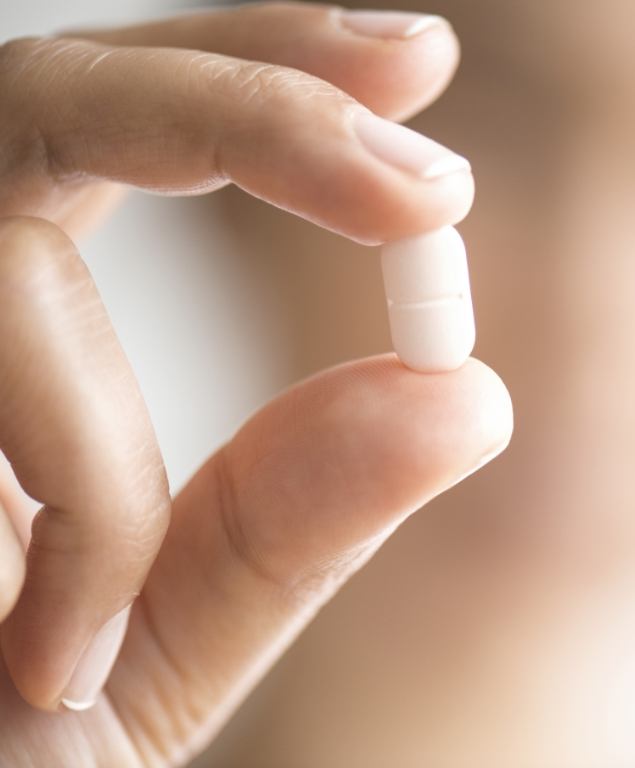Sedation Dentist Cambridge
Feel At-Ease in the Treatment Chair
A significant number of Americans do not visit the dentist for regular checkups because they are too fearful or suffer from dental anxiety. Sedation dentistry offers an excellent way to provide a safe, anxiety-free, dental experience to those who are afraid of the dentist. Sedation dentistry is often mistakenly thought to induce sleep. In fact, most sedatives allow the patient to stay awake during the procedure. Sleepiness is a side effect of some medications, but nitrous oxide, oral conscious sedation, and IV sedation only work to calm anxiety throughout the dental visit.
Sedation dentistry in Cambridge is popular because most sedatives can be taken by mouth, meaning no injections, no anxiety, and no pain. Some sedatives work so effectively that even the smells and details of the procedure cannot be recalled afterwards. Safety and compliance are two important aspects of treatments, so sedation dentistry offers both the individual and the dentist the best alternative. Whatever the form of sedative, it is essential to be accompanied by a caregiver. Sometimes, sedatives are provided the night before the dental visit, which means that driving to or from the appointment is not advisable.
Benefits of Sedation Dentistry

When using oral conscious sedation in Cambridge, patients can expect some of these advantages:
- Anxiety is alleviated.
- Few side effects.
- More can be accomplished during each visit.
- No needles.
- No pain.
- Perfectly safe.
- Procedures seem to take less time.
What Kinds of Dental Sedation Are Available?

The most popular types of dental sedatives are nitrous oxide, oral conscious sedation, and IV sedation. Different levels of sedation (mild, moderate and deep) can be utilized depending on individual needs. Before administering any sedative, the dentist must analyze the full medical history of the patient, taking note of any current medications.
What Type of Sedation Is Offered in Our Dental Office?

Oral conscious sedation dentistry in Cambridge is an excellent choice for people who fear needles. Oral medication is provided prior to treatment in order to induce a moderate state of sedation. Though oral sedatives do not cause sleep, they usually dull the senses. This means that most patients cannot remember the pain, smells or noises associated with the procedure. Usually, a dose of medication is taken prior to the appointment, and then topped up during the procedure as required.
What types of drugs are used in oral conscious sedation?

Most of the drugs used in sedation dentistry are classified as benzodiazepines. Benzodiazepines reduce anxiety, muscle spasms, insomnia, and seizures. Each medication has a different half-life, meaning that the effects last for varying amounts of time. The estimated length of the procedure determines which type of drug is going to be most effective. Here are some of the most common drugs used in oral conscious sedation:
Valium®
This sedative has amnesic properties and a long half-life. It is usually used for time-consuming, complex procedures.
Halcion®
Usually used to treat insomnia, Halcion is an effective sedative with amnesic properties. A short half-life makes this sedative useful for shorter procedures.
Ativan®
This sedative is best known for reducing anxiety. It has amnesic properties and a medium half-life. Ativan is typically used for treatments shorter than two hours.
Versed®
– This sedative has the shortest half-life and is therefore less commonly used. It alleviates anxiety in much the same way as nitrous oxide and is used for visits that will take less than 30 minutes.
Sedation Dentistry FAQS
Is sedation dentistry safe?
For the majority of patients, oral conscious sedation is a perfectly safe option. Before deciding whether or not to prescribe sedation, your dentist will go over your medical history and current medications with you to rule out any negative interactions that could possibly occur. While you are sedated our team will closely monitor your vitals, including your blood pressure, oxygen levels, and heart rate, to ensure that you are safe. You can rest assured that you are in good hands.
Will I remember anything with dental sedation?
You will remain awake throughout your entire dental treatment, but many patients don’t remember much of their treatment afterward. This memory loss effect that sedation has can make getting dental care much easier for patients who have extreme dental anxiety or negative past dental experiences. It can prevent the accumulation of more memories that can be triggering for those with severe dental phobia.
Is sedation dentistry covered by insurance?
Most dental insurance plans do not cover sedation dentistry because it is considered to be a “luxury” treatment. However, there may be some exceptions for certain circumstances. For instance, if the patient has a disability that makes it very difficult to get dental care without sedation, it could receive some coverage. There also can be some exceptions for very complex dental procedures. Just remember that every plan is different, so it’s best to confirm coverage with your dental insurance provider ahead of time so you don’t run into any surprises.
Can dental sedation make you sick?
Oral conscious sedation does come with a risk of developing nausea. To be safe, your dentist will likely recommend that you don’t eat for a few hours before your procedure. If you struggle with skipping meals, it could be beneficial for you to schedule your procedure first thing in the morning. If you are more prone to developing nausea, let us know so we can help!
Does dental sedation make you tell secrets?
Contrary to how sedation is portrayed in TV shows and viral videos online, oral conscious sedation does not act as a “truth serum.” It is unlikely that you will reveal any deep, dark secrets while you are sedated. However, even if you do say something that you wouldn’t normally say under sedation, you can trust that it will be kept within the walls of the dental treatment room.
